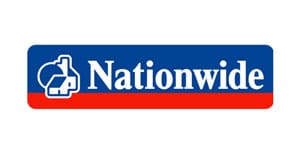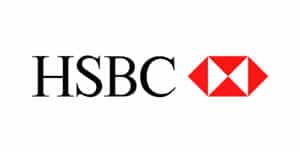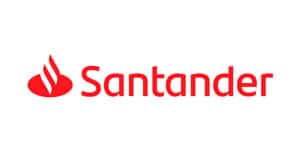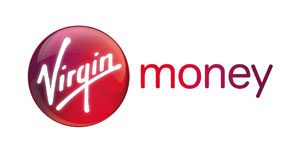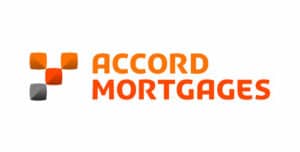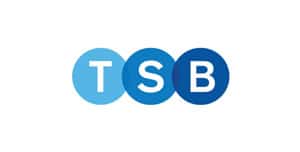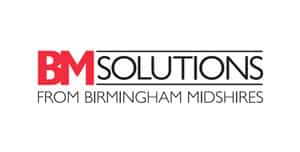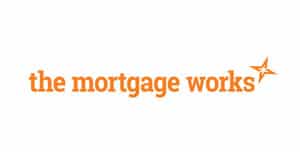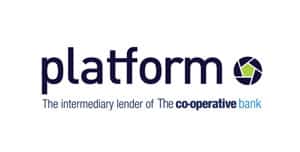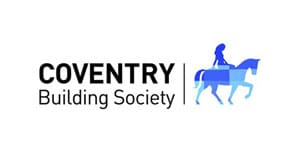First-time homebuyers in the UK often find themselves in a catch-22 situation, with high rental costs preventing them from saving for a deposit. Skipton Building Society aims to address this problem by offering a deposit-free mortgage, allowing buyers to enter the property market without the need for a deposit. This article will explain Skipton’s deposit-free 100% mortgage and the existing 100% mortgage options in the UK.
Skipton Track Record Mortgage (100% Mortgage) – A Solution for “Trapped Renters” in the UK
Skipton Building Society plans to introduce a new style of deposit-free mortgage specifically for first-time buyers who have a 12-month track record of renting. The mortgage product launched on the 9th of May 2023 enables applicants to qualify based on their consistent and timely rental payment history, bypassing the standard deposit requirement, typically between 5% and 10% of the property’s value.
About The New Skipton Product: Track Record Mortgage
Below we highlight some of the main aspects of the new Skipton product:
- The 100% mortgage product will be a set fixed interest rate of 5.49%.
- No deposit or guarantor will be required.
- The mortgage will be a 5-year fixed-rate product. The aim is that over the 5 years, although you will start with a 100% mortgage you will end up with equity within the property. If house prices increase at 5% a year over the 5 years you should end up with 25% equity on your home.
Who can apply for this mortgage?
To be eligible for the Skipton Track Record Mortgage you will need to satisfy the following eligibility criteria:
- All applicants are first-time buyers.
- Each applicant is 21 years old or older.
- You have less than a 5% deposit.
- You seek to borrow up to £600,000.
- You satisfy the household-to-household criteria.
- You are not purchasing a new build flat.
- You can provide evidence of 12 consecutive months of rent payments within the last 18 months.
- All applicants have maintained a clean payment record on debts and credit commitments (e.g., mobile phone bills) for the past 6 months.
- You have a history of paying all household bills (e.g., utility bills, council tax, etc.) for a minimum of 12 consecutive months within the past 18 months.
- The new monthly mortgage payments will have to be equal to or less than the monthly rent that applicants have been paying.
Track Record Mortgage Borrowing Amount Examples
The table shows an estimate of the loan Skipton can offer based on different rents, but it is subject to change depending on the mortgage terms and interest rates. To get more accurate information when helping customers, use the Track Record calculator below.
- *indicative rate only
- **this may reduce if the output from Skiptons affordability calculator is lower
| Monthly Rent (mean avg over last 6 months) | Mortgage Term (years) | Based on a rate of* | Max loan based on rent** |
|---|---|---|---|
| £500 | 35 | 5.49% | £93,221 |
| £750 | 35 | 5.49% | £139,831 |
| £1,000 | 35 | 5.49% | £186,442 |
| £1,250 | 35 | 5.49% | £233,052 |
| £1,500 | 35 | 5.49% | £279,662 |
| £1,750 | 35 | 5.49% | £326,273 |
| £2,000 | 35 | 5.49% | £372,883 |
Skipton Track Record Mortgage Calculator
Below is a mortgage calculator based on the new Skipton product called Track Record Mortgage. Fill in your monthly rent and desired mortgage term to see how much you could borrow. Following this get in touch with us for further advice. We can apply for this mortgage on your behalf, manage it throughout and update you at every stage. We do not charge a fee for our service when getting you a Skipton Track Record Mortgage.
This calculation is based on the current initial interest rate of the Skipton Track Record mortgage and will provide an indication of what we may be able to lend.
Please note: This calculator is to give you an idea of how much you can borrow with Skiptons Track Record Mortgage. To get an exact loan amount based on your personal situation, get in touch with our mortgage advisors for FEE-FREE advice and support. We will oragnise your Skipton Track Record mortgage for FREE.
Skipton Track Record Mortgage FAQs
How do I know if I am eligible?
You may qualify for the Skipton Track Record Mortgage if you meet the following criteria:
At least 21 years old
A first-time buyer who has never owned property in the UK or abroad
Possessing a deposit (including gifted deposits) of under 5% of the purchase price
Currently renting and moving from one household to another (see FAQ below)
Have fully paid rent for a minimum of 12 consecutive months within the past 18 months, either alone or with the same household members
Have at least a year's experience paying all household expenses (utilities, council tax, etc.)
Seeking a loan up to £600,000
No missed payments on credit obligations (e.g. mobile phone bill) in the past 6 months
You won't be eligible if:
Your average rent over the past 6 months is less than the new monthly mortgage payment indicated by the Track Record Calculator, even slightly
You are purchasing a new build flat, defined as a flat being sold for the first time and has been newly built or converted within the past 3 calendar years
What does household-to-household mean?
Household-to-household refers to the current renters (for at least 12 months) being the same individuals applying for the mortgage.
Single applicants must have covered rental and household expenditure payments entirely for 12 consecutive months within the past 18 months.
Joint applicants (up to 4 per application) must provide evidence that these payments have been made either collectively or entirely by one applicant. Joint applicants renting separate properties are eligible if they can individually demonstrate complete coverage of their rental and household expenditure payments. In this case, their combined rental payments can be used to calculate the maximum loan amount based on the average rental payment over the past 6 months.
Am I eligible if I rented for over 12 months but moved in with family/friends less than 6 months ago to save for a deposit?
You may be accepted if you can provide evidence of at least 12 consecutive months of rental payments. If all applicants moved out more than 6 months ago, you won't be eligible. If you rent again for a minimum of 12 months, we can consider your application in the future.
What documentation is required for proof of rent payments?
You will need either 12 months of bank statements (full or concise) or a letter from a registered letting agent (ARLA, NAEA, or NACA) detailing the 12 monthly rent payments.
I pay my rent in cash, could I still be eligible?
Yes, but you'll need a letter from a registered letting agent (ARLA or another suitable association like NAEA or NACA) as proof of 12 months of rental payments.
I have been a guarantor / non-proprietor for someone else but never owned my own property, will I still be eligible?
Yes, but if you are still named on a mortgage as a guarantor / non-proprietor, this will be factored into your affordability calculation.
Can I add fees to the mortgage loan?
There are no application or completion fees. However, CHAPS fees can be added to the loan and will accrue interest at the current rate. Other fees may apply; refer to our Mortgage Tariff of Charges for more information.
What is the maximum loan amount?
The maximum loan amount for a Track Record Mortgage is £600,000.
If I have a deposit, can I use this to reduce the amount I need to borrow?
Yes, although a deposit is not required for this product, you'll still be eligible if your deposit is less than 5%.
The funds can come from your own savings or be gifted to you, which will help lower the monthly payment and overall borrowing amount. If your deposit is gifted, the gifter must meet our criteria and complete a gifted deposit declaration form.
Can I buy a new build property?
Yes, new build houses are acceptable, but new build flats are not.
A new build property is one being sold for occupation for the first time, having been newly built or converted within the past 3 calendar years.
Can I make overpayments?
Yes. Overpayments up to 10% of the original balance each year are allowed without Early Repayment Charges (ERCs).
An Early Repayment Charge (ERC) applies if you repay your mortgage early or make an overpayment exceeding your annual overpayment allowance during the initial 5-year fixed rate period of the Track Record mortgage.
What is a first-time buyer?
A first-time buyer is someone who has never owned an interest in a residential property anywhere and intends to occupy the property as their main residence. You are not a first-time buyer if you have ever owned property in the UK or abroad, including Buy to Let properties or inherited properties, even if you never lived there.
Will Skipton Track Record Mortgage lend on flats?
Yes, Skipton will consider pre-owned flats, but not new build flats.
A new build flat is one being sold for occupation for the first time, having been newly built or converted within the past 3 calendar years.
What is a fixed rate mortgage?
A fixed rate mortgage has a consistent interest rate for a set period, in this case, five years for the Track Record Mortgage. Your interest rate will remain unchanged regardless of fluctuations in other interest rates.
An Early Repayment Charge (ERC) applies if you repay your mortgage early or make an overpayment exceeding your annual overpayment allowance during the initial 5-year fixed rate period of the Track Record mortgage.
How does Skipton check my credit history, and which credit reference agency do they use?
Skipton checks your credit history as part of the mortgage application process to assess your creditworthiness and ensure you can afford the mortgage repayments. They use Experian, a leading credit reference agency in the UK, to obtain your credit report. It is important to ensure your credit report is accurate and up-to-date, as this will impact your eligibility for a mortgage. You can check your credit report for free through Experian's website before applying for a mortgage to avoid any surprises during the application process.
What people are saying: Skipton Track Record Mortgage (Deposit-Free Mortgage)
The new Track Record Mortgage is essentially a 100% loan-to-value (LTV) product, which has required approval from financial regulators as high LTV ratios are often considered risky. The new mortgage could provide a lifeline to thousands of “trapped renters” in the UK who have been unable to save for a deposit due to high rent costs.
Skipton Group chief executive Stuart Haire has said: “the product will ‘enable people trapped in rental cycles – where they’re prevented from being able to save for a house deposit – to access the property ladder and make a home’.
The new zero deposit mortgage has been welcomed by the campaign group Generation Rent. They have emphasised that while no-deposit mortgage deals could assist potential homebuyers, the scarcity of affordable homes continues to be a significant issue. Generation Rent, an organisation advocating for private renters, emphasises that the limited availability of properties within the budget of first-time buyers remains a considerable obstacle for those striving to get on the property ladder.
Stephen Roberts Director of YesCanDo Money says: First Time Buyers have had a hard time over the last decade with house prices increasing year on year. Since September 2021, interest rates have increased, which has made it even more difficult for first-time buyers to get on the property ladder. This is just what is needed for both the general housing market and, more importantly, for first-time buyers who are currently renting and in need of a helping hand to take their first step onto the property ladder.
Other Lenders Existing 100% Mortgage Options
While 100% mortgages are available from some mortgage lenders, they usually require some form of assistance and guarantee from the buyer’s parents, known as a guarantor. These family-assisted mortgages lend up to 100% of the purchase price to a first-time buyer who can prove they can afford repayments. However, they also require additional security from the parents, such as cash locked in a savings account or equity in their home.
Examples of existing 100% mortgage products include:
- Barclays Family Springboard
- Lloyds Lend a Hand
- Halifax Family Boost Mortgage
- Loughborough Building Society Family Deposit Mortgage
- Beverley Building Society Property Assist
- Buckinghamshire Building Society Family Assist
- Vernon Building Society Head Start Mortgage
- Mansfield Building Society Family Assist
- Tipton & Coseley Building Society Family Assisted Mortgage
The Decline of 100% Mortgages
Prior to the 2008 financial crisis, many lenders offered 100% mortgages, with some even lending more than the property’s value. However, the credit crunch led to a significant decline in this type of lending due to the associated risks. Skipton’s proposed deposit-free mortgage could potentially revive this market for first-time buyers struggling to save for a deposit.
Are 100% Mortgages a Suitable Option?
Peter Dockar, Commercial Director at Generation Home, believes that 100% mortgages can be an excellent choice for the right individuals. He states that this type of mortgage is well-suited for people with steady incomes and high affordability but who have been unable to accumulate a deposit.
Peter Dockar challenges the conventional wisdom that requires a 5% deposit for most mortgages, claiming that the requirement is arbitrary. He argues that the belief that borrowers without a deposit “don’t have any skin in the game” is not necessarily accurate, as there are potential homeowners with the financial capacity to manage a mortgage but simply lack the initial deposit.
Conclusion
Skipton Building Society’s deposit-free mortgage offers a promising solution for first-time buyers in the UK who have been unable to save for a deposit due to high rental costs. While 100% mortgages do exist, they often require assistance from family members, making Skipton’s product an attractive alternative for those who can prove their ability to repay a mortgage based on their rental payment history. If approved by financial regulators, this mortgage product could help thousands of “trapped renters” achieve homeownership.

